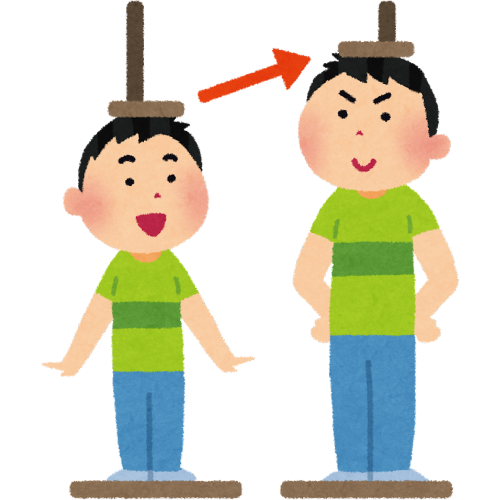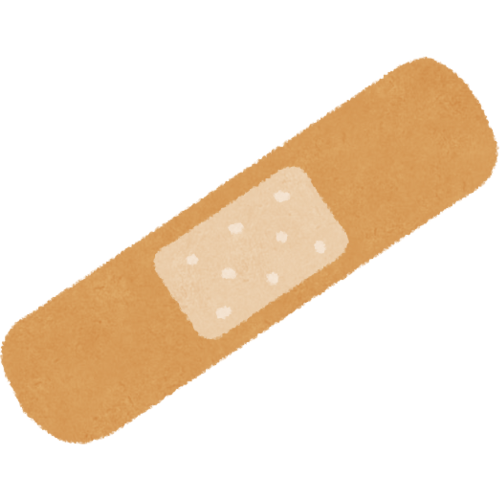Nutrition is often talked about like it’s some mysterious science, but really, it’s all about how your body gets what it needs from food to keep you alive and well. In this article, we break down what nutrition actually means and why it’s the foundation for everything your body does, from growing and healing to simply getting through the day.
What is Nutrition ?
Ever wonder why some days you feel like a functioning adult, and other days you’re basically a sentient blanket fueled entirely by toast and caffeine? Yeah, me too. As it turns out, it might have something to do with what we’re putting into our bodies. Or, in my case, what I’m not putting in because I’ve convinced myself that snacks count as meals and that pizza has all the major food groups.
Nutrition isn’t just for gym bros, wellness influencers, or people who say things like “I just love quinoa.” It’s for all of us. Especially those of us who’ve ever stress-ate half a baguette and called it dinner. Nutrition is, quite literally, the science of staying alive and hopefully thriving. It’s how our bodies get what they need to run the whole show. From brain fog to energy slumps, from cranky moods to mystery bloating, so much of it ties back to what and how we eat.
This article isn’t here to guilt-trip you into giving up cake or to sell you a green smoothie cleanse. It’s here to answer a simple but surprisingly loaded question : what is nutrition, really, and why should you care? Stick around, and we’ll figure it out together because feeding yourself well shouldn’t feel like punishment.
Nutrition for the chronically confused
& perpetually snackish
At its core, nutrition is simply how your body takes the food you eat and turns it into stuff you need to survive. It’s the process of nourishing your body, kind of like fueling a car, except the car is you, and instead of gas, you need a confusing mix of carbs, fats, proteins, vitamins, minerals, and water. Fun, right?
When you eat, your body gets to work. It breaks down your food and pulls out nutrients, those tiny building blocks that keep you running. Carbs give you energy, proteins help build and repair things like muscles and skin, fats support your brain and hormones, and vitamins and minerals keep everything from your immune system to your bones in working order. Oh, and water ? Your body’s basically a fancy, walking water balloon. You need it to keep things flowing, literally.
Nutrition plays a role in everything :

Helping you
grow & develop

Healing wounds or bouncing back after being sick

Giving you the energy to get through your day

Keeping your immune system strong

Supporting your brain

Supporting & maintaining your body

Regulating hormones

Affecting gut health
So no, it’s not just about eating salad or skipping dessert. It’s about giving your body the materials it needs to build, repair, defend, and energize. When nutrition is off, everything feels off. When it’s on, you feel like a superhero. Or at least like someone who can make it through 3 p.m. without a caffeine crash and an existential crisis.
What Nutrients actually are
So earlier, we talked about the six main nutrients your body pulls from food : carbs, proteins, fats, vitamins, minerals, and water.
Water is the odd one out. It’s not a macro or a micro, but it’s crucial for literally every function in your body.
You’re basically a mobile sack of water. It regulates your body temperature, helps you digest food, keeps your skin plump, cushions your joints, and flushes out waste. Even slight dehydration can tank your energy and mood. So drink some water. Like, now.
Now let’s get into what they actually do and how they fit into two key categories : macronutrients and micronutrients.
Macronutrients
Macronutrients are the ones you need in large amounts. They give your body energy and provide the bulk of your nutrition. These are carbohydrates, proteins, and fats.
Carbohydrates
Carbs are your body’s preferred source of energy. They break down into glucose, which fuels your brain and muscles. Whole grains, fruits, veggies, and legumes provide carbs with fiber and nutrients, while refined sugars are more like a temporary sugar rush followed by regret.
Proteins
Protein helps build and repair tissues, from muscles to enzymes to hormones. It’s basically what your body uses for maintenance and renovation. You’ll find it in meat, fish, eggs, dairy, beans, tofu, lentils, and nuts.
Fats
Despite what diet culture told us, fat is not the enemy. It supports your brain, cushions your organs, helps absorb certain vitamins, and regulates hormones. Go for healthy fats from nuts, seeds, avocado, fish, and olive oil.
Micronutrients
Micronutrients, on the other hand, are needed in much smaller amounts but are still absolutely essential. These are your vitamins and minerals.
Vitamins
Vitamins help your body do… basically everything. They support your immune system, help your body heal, and keep your organs and tissues functioning properly. Each vitamin has its own job, like a team of microscopic specialists.
Minerals
Minerals are essential for building strong bones, making hormones, carrying oxygen in your blood, and more. Think calcium, iron, zinc, magnesium, potassium. You get these from a variety of foods like dairy, leafy greens, nuts, seeds, vegetables, and meat.
Why eating well
isn’t just for Instagram
Nutrition can feel like one of those things we know is important but struggle to actually connect to our everyday lives. It’s not just about following food rules or obsessing over labels. It’s about understanding how what you eat shapes how you feel, function, and thrive.
Good nutrition isn’t about chasing perfection. It’s about giving your body what it needs to do its job, and to do it well. From the way you wake up in the morning to how your brain handles stress or your muscles recover after a long day, food plays a central role.
Physical Health
the obvious (but often ignored)
Nutrition gives your body the tools it needs to stay healthy. A balanced diet helps:
- Reduce the risk of chronic illnesses like heart disease, type 2 diabetes, and high blood pressure
- Support your immune system, so you get sick less often
- Fuel physical growth and repair, especially during childhood, adolescence, and recovery from injury
- Keep your bones strong, your muscles working, and your organs running like they’re supposed to
Mental Health
yes, food affects your brain too
Your brain runs on nutrients just like the rest of you. The food you eat affects how clearly you think, how well you focus, and how balanced your mood is. Certain nutrients help produce serotonin and dopamine, those feel-good chemicals everyone’s chasing. Ever felt foggy after a junk food binge or jittery after too much sugar? That’s not just in your head, it is your head.
Consistently eating nourishing food helps:
- Improve concentration and memory
- Regulate mood and reduce anxiety or depression symptoms
- Support better sleep and more stable energy
Long-Term Impact
your future self will thank you
Nutrition isn’t just about surviving today. It’s also about how you’ll feel 10, 20, or 50 years from now. Eating well over time reduces your risk of developing chronic diseases and helps you age with more strength, energy, and independence. Think fewer medications, more mobility, …
Good nutrition builds a strong foundation for lifelong health. It’s not about perfection, it’s about patterns. The better you eat, the better your body and brain work, now and later.
How to start eating
more nutritiously ?
Changing how you eat can feel like trying to rewire your brain while blindfolded, especially when the internet is yelling a thousand contradictory things at you. But eating more nutritiously doesn’t mean throwing out everything you love or becoming a green smoothie cultist. It’s about small, sane shifts that make you feel good, not guilty.
1. ADD BEFORE YOU SUBTRACT
Instead of obsessing over what to cut out, think about what you can add in. More colorful veggies? Great. A handful of nuts for your snack? Awesome. A glass of water between your coffees? Look at you go.
2. MIX IT UP
Variety really is the spice of life, and of nutrition. Try to include different colors, textures, and food groups on your plate. No one food can do it all, just like no one playlist fits every mood.
There’s no “perfect” way to eat. There’s just what works for you. That includes birthday cake, spontaneous takeout nights, and slow Sunday breakfasts. Joy and flexibility are part of health too.
3. DITCH THE FOOD GUILT
Your body is smarter than you think. When you eat slowly and without distraction, you’re more likely to notice when you’re full, satisfied, or actually craving something other than chips.
4. SLOW DOWN AND LISTEN
5. GET HELP IF YOU NEED IT
If you feel overwhelmed or lost, you don’t have to figure it all out alone. A registered dietitian, nutritionist, or another qualified healthcare professional can help you figure out what your body actually needs, not what Instagram says it should want.
You don’t need to overhaul your life in one day. Start small. Keep going. Your meals don’t have to be Pinterest-worthy, just real, nourishing, and enough to fuel your very real, worthy self.
6. PROGRESS,
NOT PERFECTION
Nutrition &
Individual needs
If there’s one thing nutrition teaches us, it’s this : there’s no universal blueprint for how to eat. Our bodies are as unique as our fingerprints. Shaped by our age, lifestyle, health, culture, and a million other little things that make us who we are.
Growing kids and teenagers need different fuel than busy parents juggling work and naps. Athletes have higher energy demands, while someone managing a health condition might need tailored nutrients or special care. And don’t forget cultural food traditions, they’re a beautiful part of what nourishes us, not something to ignore or feel guilty about.
The takeaway ? Listen to your body. Respect your story. Trust that your nutritional needs will be as individual as you are.
So, forget the idea that there’s one “right” way to eat. Instead, find the way that fits your life, supports your goals, and makes you feel good, because that’s the real recipe for lasting health.
We’ve covered a lot about what nutrition really means, and why those six essential nutrients matter. Nutrition isn’t about strict rules or chasing some impossible ideal. It’s about listening to your body, feeding it what it needs, and treating food as an act of kindness toward yourself.
Think of nutrition as self-care, not a punishment or a challenge. It’s giving your body the fuel to move, grow, heal, and enjoy life. You don’t have to be perfect, you just have to be real.
So go ahead, eat that cookie if you want to, savor your meals, and remember : you deserve to thrive, not just survive. Nutrition is your toolkit for doing exactly that.
Bon appétit !
A little note for you, dear reader :
This article is for educational purposes only. This blog is all about sharing how things work inside your body in a way that’s easy to understand and (hopefully) enjoyable to read. Nutrition can be complex and personal — what’s right for one person might not be for another — and it’s always evolving. My goal is to give you tools and knowledge, not rules, so you can make informed choices that feel right for you. Always listen to your body and your values, and if you have health concerns or specific dietary needs, talk to a qualified professional.
Leave a Reply